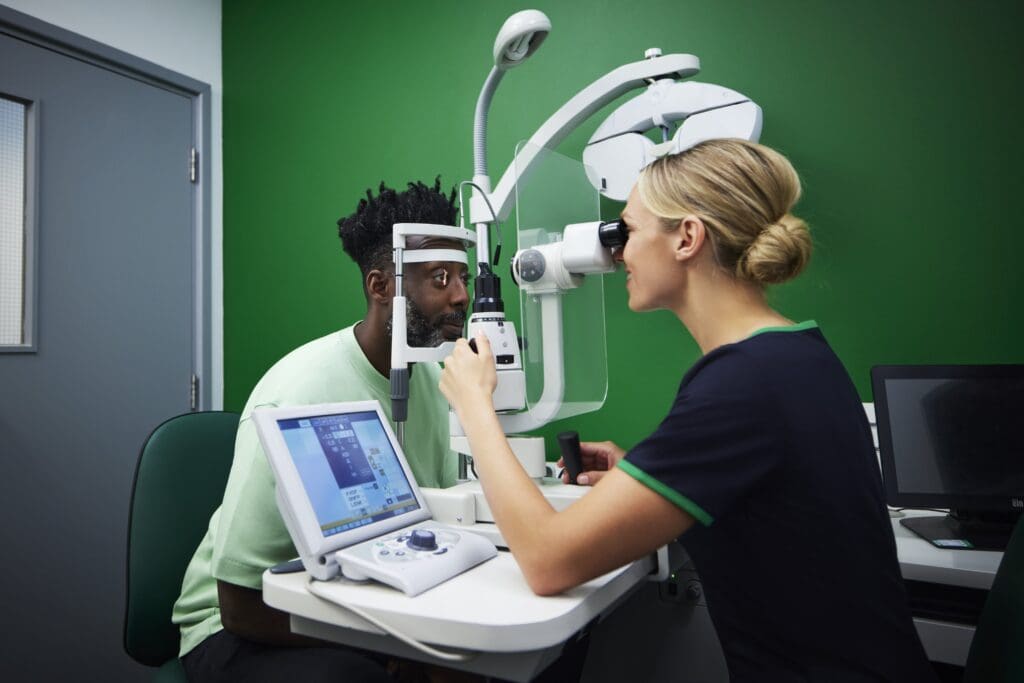THERE are 15,100 people in Wales living with sight loss, according to latest figures.
To mark National Eye Health Week (23-29 September), Specsavers stores in Wales are raising awareness about the dangers of ignoring telltale signs of eye conditions that can lead to sight loss.
This comes as statistics by the Royal National Institute of Blind People (RNIB) show that by 2032 the number of people living with sight loss in Wales will rise to 133,000.
Among the conditions that can cause sight loss are age-related macular degeneration, cataracts, diabetic retinopathy and glaucoma.
The RNIB figures also show that one in five people will experience sight loss in their lifetime1. Every day 250 people start to lose their sight.
Clare Corcoran, optics chair of chairs says: ‘Prevention, early diagnosis and treatment of common eye conditions are key to reducing the number of people suffering sight loss unnecessarily.
‘A large percentage of sight loss could be avoided if people have their eyes checked regularly.
‘Yet despite sight being the sense that most people are concerned about losing, many people don’t actually have their eyes checked every two years.
‘Regular eye-health checks are important in preventing sight loss. They are essential for everyone, even if you think your eyes are fine, because damage can be done before you notice it.
‘For example, an eye test can spot glaucoma years before people notice a change in their vision, and it can be treated if found soon enough.
‘In addition to eye health, a sight test can detect other health conditions such as diabetes, high blood pressure, raised cholesterol, risk of stroke and heart disease.
‘So in addition to not smoking, eating a healthy diet and staying active, I would urge everyone to have an eye test every two years.’
In addition to underlying conditions, eye health can be affected by the overuse of electronic screens.
Screen fatigue won’t permanently damage a person’s eyes, but it can make symptoms of existing eye conditions such as short-sightedness more pronounced.
Clare adds: ‘These days, where we engage daily with computer monitors, mobile devices and TV screens, people suffer from screen fatigue.
‘Overuse of screens without a break can result in dry eyes, tired eyes and even blurred vision.
‘We should all give our eyes a rest by following the 20-20-20 rule – looking away from the screen for 20 seconds every 20 minutes and focusing on something 20 feet away.
‘It’s also advisable to break up screen time by spending time outdoors, enabling us to focus on things further away.
‘Following all the 20-20-20 rule and having our eyes tested every two years will significantly reduce the occurrence of sight loss in our communities.’

